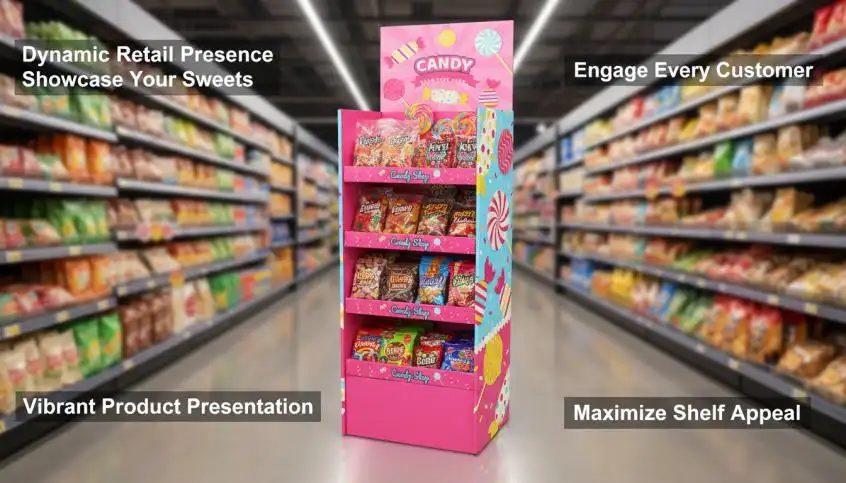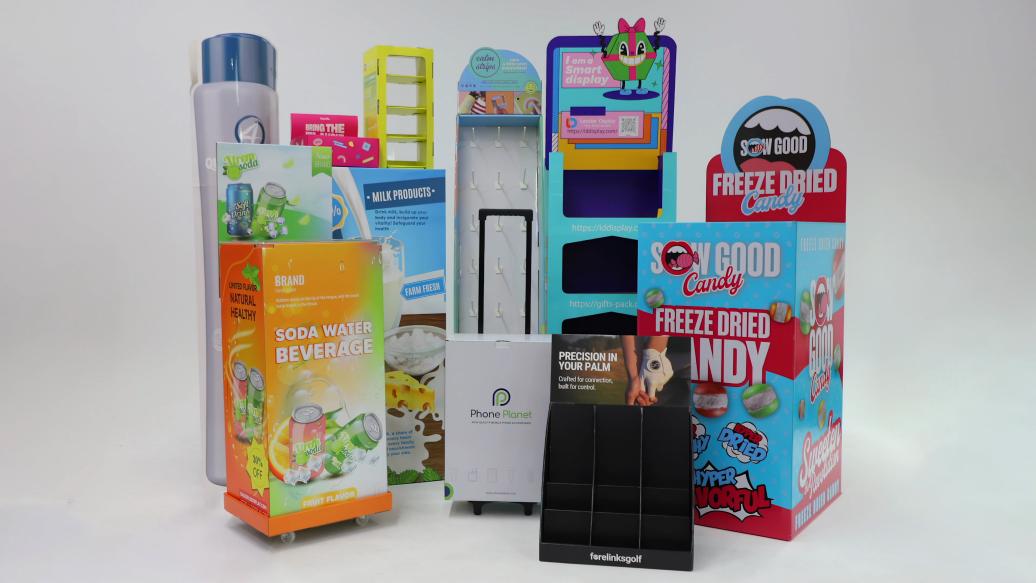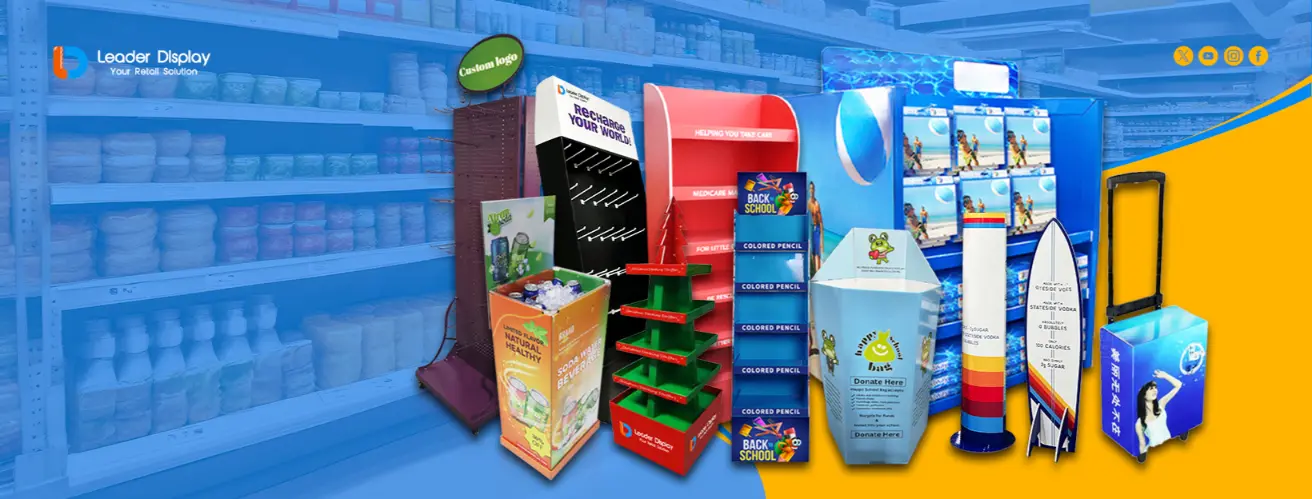In the competitive world of retail, grabbing customers' attention is paramount. One of the most effective ways to do this is by strategically displaying your products in stores. From eye-catching visuals to strategic placement, here's how you can ensure your products stand out on the shelves:
1. Know Your Target Audience
Before diving into the nitty-gritty of product display, it's essential to understand your target audience. What are their preferences, needs, and buying habits? Tailoring your display to resonate with your ideal customers can significantly increase the likelihood of capturing their attention.
2. Invest in High-Quality Displays
The quality of your product display speaks volumes about your brand. Invest in sturdy, visually appealing displays that effectively showcase your products. Whether it's a sleek shelving unit, a vibrant endcap display, or a creative floor stand, choose displays that align with your brand aesthetic and effectively highlight your products.
3. Prioritize Visual Appeal
Visual appeal is key to attracting customers' attention in a busy retail environment. Use eye-catching graphics, vibrant colors, and compelling imagery to draw shoppers' eyes to your products. Consider incorporating signage, banners, or digital displays to convey key messages and promotions effectively.
4. Optimize Product Placement
Strategic product placement can significantly impact sales. Position your products in high-traffic areas where they're likely to be noticed, such as near entrances, checkout counters, or within the line of sight of complementary products. Additionally, consider cross-merchandising opportunities to increase exposure and drive impulse purchases.
5. Keep It Organized and Accessible
A cluttered or disorganized display can deter customers from engaging with your products. Keep your display clean, organized, and easy to navigate. Group products logically, ensuring that similar items are displayed together. Make sure products are easily accessible, allowing customers to interact with them comfortably.
6. Utilize Lighting Effectively
Lighting can make a significant difference in how your products are perceived. Ensure your display area is well-lit, with appropriate lighting that highlights your products' features and benefits. Experiment with different lighting techniques, such as spotlighting or backlighting, to create a visually striking display.
7. Monitor and Adjust
Effective product display is an ongoing process. Continuously monitor the performance of your displays, paying attention to sales data, customer feedback, and foot traffic patterns. Use this information to make informed adjustments and optimizations to your display strategy over time.
Conclusion
In conclusion, mastering the art of product display in stores is essential for any retail business looking to succeed in today's competitive market. By understanding your target audience, investing in high-quality displays, prioritizing visual appeal, optimizing product placement, keeping displays organized and accessible, utilizing lighting effectively, and continuously monitoring and adjusting your strategy, you can maximize the visibility and impact of your products in stores, ultimately driving sales and fostering customer engagement.




